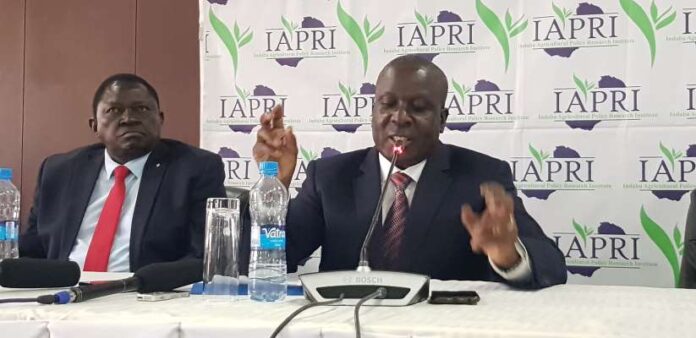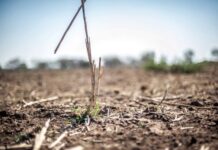Zambia should effectively apply the Carbon Emission Tax policy to raise resources to mitigate the escalating seasonal droughts, occasional dry spells, and increased temperature, amid delays from developed nations-polluters of greenhouse gases to provide climate financing.
Zambia is among several developing countries that introduced carbon pricing through carbon emission tax policy to limit global warming. The calamity has forced many vulnerable households to grapple with the crisis despite the available recourse.
According to petitioners, a stand-alone legislation on carbon emission tax Carbon dioxide emission is among the greenhouse gases that are increasing global temperatures, rising sea levels, fluctuations in rain patterns and deterioration of the ecosystem; these emissions create a greater environmental threat.
The Fight Inequality Alliance (FIA)-a unit of the global movement, embracing over 300 groups across borders and organisations in the fight for a more equal world is one of the petitioners concerned with climate change effects and wants the law applied effectively that relies on donor help.
In a petition by country coordinator Daisy Mutangu FIA notes that Zambia is eligible to raise resources domestically under the Customs and Excise Amendment Act of No.18 of 2015.
This is despite the country lacking a stand-alone legislation on carbon emission tax to generate resources and undertake adaptation and mitigation of the crisis,
While the government has, despite introducing the carbon emission surtax, not developed or structured any policy and development framework to regulate carbon taxation.
The tax is instead imposed on vehicles, machinery and equipment yet could be used to directly deal with climate change and raise resources as it is caused by the emissions.
Arguably, a carbon emission tax is by law, an environmental tax on emissions of carbon dioxide, and that essentially, carbon tax is meant to protect the environment by pricing emissions of carbon dioxide.
Arguably some levies can be charged, collected and paid as surtax at the rates specified in the surtax tariff as provided for in the Fourth Schedule in respect of— (b) carbon emissions from motor vehicles, excluding ambulances, prison vans and vehicles propelled by non-polluting energy.
While Zambia is among many countries that have introduced carbon pricing through carbon emission tax as a way of limiting global warming, lacks a stand-alone legislation on carbon emission tax-an environmental tax on emissions of carbon dioxide, essentially carbon tax is meant to protect the environment by pricing emissions of carbon dioxide.
To avert this impact Zambia needs appropriate and sustainable programs and adaptation mechanisms for climate resilience. This calls for climate financing which Zambia and other climate change affected countries are struggling to raise climate funds and seek donor help for loans.
The Wildwide Fund for Nature (WWF) has echoed other global campaigners in asking Africa and all affected developing and small islands to look inward and adopt Domestic Resource Mobilisation (DRM) tactics to adapt and mitigate the effects of the crisis, said Nachilala Nkombo-the Zambia country director.
Madagascar, Mauritius, Zanzibar, like many others affected by the crisis should look inward and fight the crisis, decreasing their capacity to grow and there is a need to initiate Nature Based Solutions to become resilient.
Nature Based Solutions as ecosystem conservation, management and restoration interventions are intentionally planned to deliver measurable, positive climate adaptation and mitigation benefits that have human development and biodiversity co-benefits.
They are key in helping the most invulnerable to help manage anticipated climate risks to people and nature, She says. The Zambia Institute of Environmental Management (ZIEM) commended the government for enacting the Carbon Emission Tax.
Chief executive officer Morgan Katati noted that the initiative would allow revenue from carbon emission tax to adequately fund the environmental sector. Zambia has for a long time now been using the standards setting approach through licensing and emission standards according to statutory instrument No. 141 of 1996 Act No. 12 of EPPCA 1990.
The taxation approach is another abatement model used to collect money from polluters and information has it that carbon emission tax may be the low cost solution of achieving a given standard of pollution control.
And The United Nations secretary general António Gutiérrez has implored delegates and other leaders to COP 27 conference to prioritise climate change solutions or face global environmental catastrophe.
He is against complacency in redressing the effects of the crisis amid its vicious catastrophes. He urged global leaders not to abandon key goals, including keeping global temperature rise to 1.5C, in order to avoid the worst effects of climate change.
“There has been a tendency to put climate change on the back burner,” he said. “If we are not able to reverse the present trend, we will be doomed.”, he is cited as saying.
Current global problems such as inflation, Russia’s invasion of Ukraine and the high prices of energy and food were distracting governments hence the need to give the crisis the attention it deserves for lasting solutions and avert further damage to the environment.
But agriculture minister Reuben Mtolo is impressed with the effects of climate change and supports the call for carbon tax revenue to be applied and meet the increasing demand for finance to mitigate the shortcomings.
“We as Government are seriously looking at maximizing the carbon tax to meet various expenditure and we will soon come up with a decision,”









[…] Source link […]
Comments are closed.